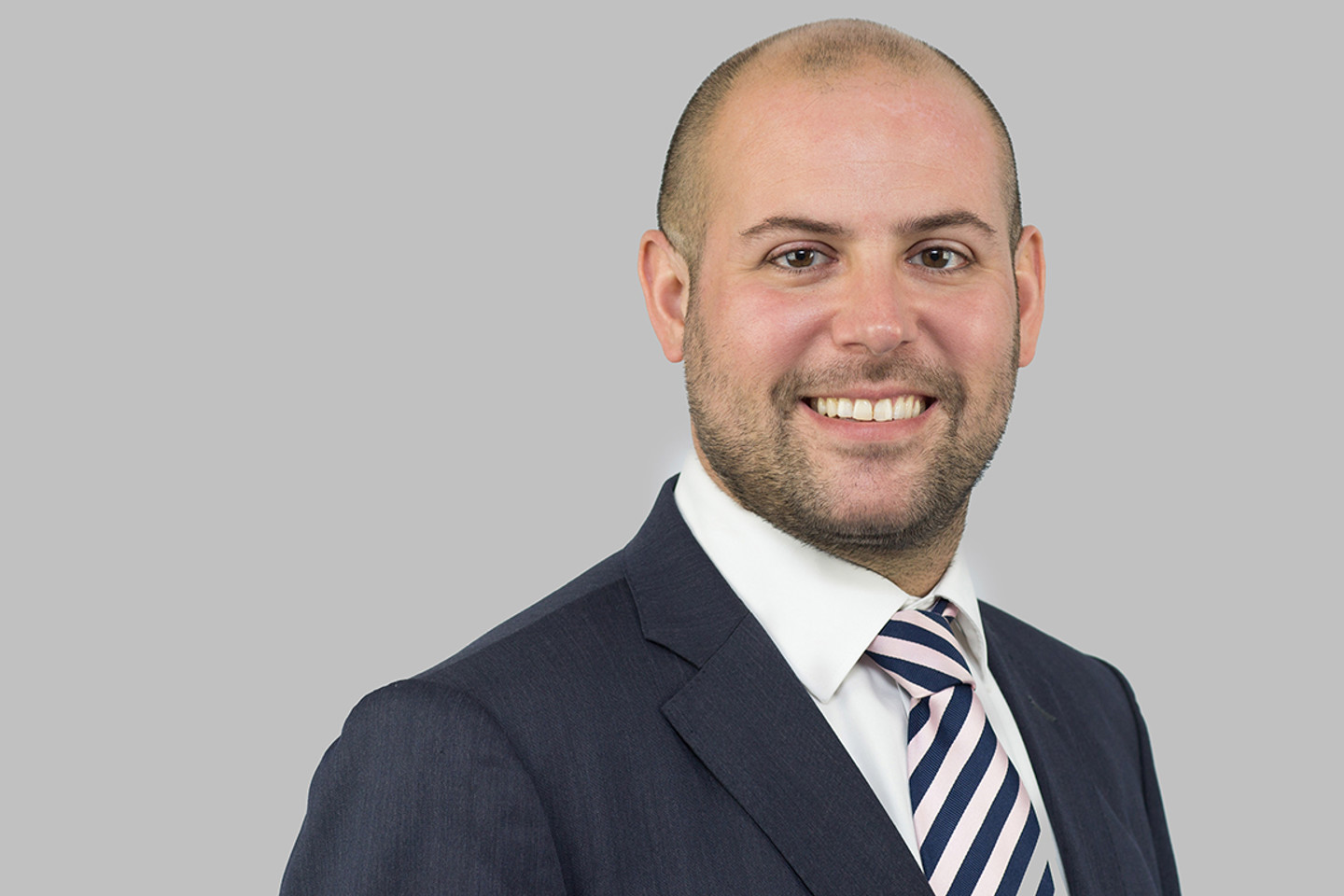
Mathew Newman
Partner | Legal
Guernsey

Mathew Newman
Partner
Guernsey
No Content Set
Exception:
Website.Models.ViewModels.Components.General.Banners.BannerComponentVm
In the recent decision in the matter of EEA Fund Management (Guernsey) Limited and EEA Life Settlements Fund PCC Limited v Coventry Capital US LLC the Royal Court of Guernsey has restated and applied the principles applicable to the awarding of legal costs payable by one party to the other upon finalisation of the proceedings. In this briefing, we will summarise the key principles traversed and applied by the Royal Court.
The application made by EEA Fund Management (Guernsey) Limited and EEA Life Settlements Fund PCC Limited (referred to in this briefing together, as EEA) was for an order that Coventry Capital US LLC (Coventry) should pay the costs incurred by EEA on an indemnity basis. The main dispute between the parties having been resolved by the effective capitulation of Coventry (as described further below), EEA contended it was entitled to its legal costs incurred on the indemnity basis. It should be noted that the indemnity basis is the higher award of costs in Guernsey law, as compared to the lower tariff, referred to as costs on the recoverable (standard) basis.
The background to this costs application is relevant to the Court's determination of the costs sought. The proceedings in Guernsey had commenced with Coventry making an ex parte application (one where the party against whom relief is sought is not notified or present) against EEA for an order in terms of the Evidence (Proceedings in other Jurisdictions) (Guernsey) Order, 1980. This is the mechanism by which the Hague Convention on the Taking of Evidence Abroad in Civil or Commercial Matters (18 March 1970) (the Hague Convention on Evidence) is applied and complied with in Guernsey.
Coventry had obtained an order from the United States District Court making a request to the Royal Court of Guernsey to assist the US Court and Coventry by ordering in Guernsey that certain summonses should be issued and evidence gathered under them by appearance of witnesses in front of a Commissioner appointed by the Royal Court for this purpose.
On 11 October 2019, Coventry was successful in obtaining this ex parte order, and the relevant witness summons were served on 18 October 2019.
On 31 October 2019 EEA's Guernsey counsel wrote to Coventry's Guernsey counsel indicating that EEA intended to apply for the setting aside of the summonses, on a number of bases. These included raising a conflict of interest on the part of Coventry's legal counsel, as well as indicating that EEA had other grounds in terms of which it intended to challenge the legal validity of the summonses.
After a number of back and forth interchanges, a key fact emerged: on 13 November 2019 Coventry's counsel sent an email to EEA's counsel indicating that an appeal in the US proceedings (the US Appeal) had been successful for Coventry. As a result, the US Court had ordered pursuant to the US Appeal that EEA were "obliged to disclose documents encompassing at least all of the documents requested in the Letters of request". The effect of the US Appeal's outcome was that the summonses had become unnecessary, as the documents in question would need to be produced in the US proceedings in any event. Importantly, Coventry had known of the success of the US Appeal since 1 November 2019.
On 15 November 2019, some two weeks after learning of the successful US Appeal, Coventry's counsel indicated to EEA's counsel that they had been instructed to withdraw the letter of request and to seek the setting aside of the summonses. EEA's counsel responded the same day accepting the withdrawal but subject to Coventry paying EEA's costs incurred to date on the indemnity basis. Coventry refused and insisted there should be no order as to costs. EEA therefore made an application to the Royal Court for its costs on the indemnity basis.
EEA raised the basic principle that there was a wide discretion afforded to the Court by section 1(1) of the Royal Court (Costs and Fees) (Guernsey) Law, 1969. While the awarding of costs is within the Court's discretion, it is an accepted principle that in the absence of some unreasonable conduct on the part of a defendant, a plaintiff who discontinues a claim is to be liable for the defendant's costs up to the date of discontinuance.
EEA furthermore sought indemnity costs pursuant to Rule 83 of the Royal Court Civil Rules, 2007 on the basis that there was unreasonable conduct by Coventry, taking the proceedings out of the norm, and also raised certain Jersey authority where indemnity costs had been awarded where plaintiffs had withdrawn proceedings. EEA argued that Coventry's conduct was out of the norm, because of Coventry's failure, once the US Appeal had been granted on 1 November 2019, to withdraw the summonses forthwith (or at least stay the proceedings), which they had failed to do. EEA also argued that Coventry's failure to take the Royal Court into its full confidence at the ex parte hearing, by not raising the pending US Appeal, was another ground of unreasonableness.
In essence, not only had Coventry failed to make the required full and frank disclosure in the ex parte hearing of the US Appeal, but once the appeal was granted, Coventry had behaved in an unreasonable manner by not withdrawing the summonses and forcing EEA to incur costs up to when the summonses were later withdrawn. This unreasonable conduct took the matter outside of the norm and should form the basis for the higher award of costs, on the indemnity basis.
The Royal Court considered that since on 20 November 2019 it has made an order by consent that the witness summonses be set aside, Coventry had effectively capitulated and "In terms of winners or losers, … this means the Applicants [EEA] won".
The Royal Court cited the general principle that costs will normally follow the event, meaning that the losing party must pay the legal costs of the winning party. In exercising its wide discretion, the Royal Court would seek to apply this basic principle, and the Royal Court found (at paragraph 37) that "this raises a presumption of making a costs order against the Respondent [Coventry] in their favour." The Royal Court rejected Coventry's counter-arguments that there should be no order as to costs (each party effectively to pay its own costs), on the basis that although the Royal Court's discretion under Rule 61 of the 2007 Rules was wide one, it nonetheless remained subject to the application of the "usual principles of where the costs should lie" (paragraph 40).
Having found that EEA was entitled to costs in its favour, the Royal Court proceeded to consider whether indemnity costs (the higher tariff of costs, covering a larger portion of the legal fees actually incurred) or recovery costs (lower costs on a more restrictive tariff) should be ordered.
The Royal Court quoted at paragraph 47 the test applicable for whether or not to award indemnity costs, as per the Investec Trust case, namely "is there something in the conduct of the action by one of the parties or the circumstances of the case which takes the case out of the norm in a way which justifies an order for indemnity costs, recognising that there will usually be some degree of unreasonableness?"
EEA submitted authority to the effect that "to maintain a claim that you know, or ought to know, is doomed to fail on the facts and on the law, is conduct that is so unreasonable as to justify an order for indemnity costs." EEA argued that Coventry had failed to disclose the existence of the pending US Appeal to the Royal Court when applying ex parte for the summons to be issued, and that moreover Coventry, once it knew of the US Appeal being successful, was unreasonable at that point in not immediately withdrawing the summonses as the need for them had to all intents and purposes fallen away.
The Royal Court dealt with EEA's argument in this regard, stating at paragraph 54 that it was "an opportunity missed" that Coventry had failed to alert EEA of the success of the US appeal. At paragraph 56 the Royal Court found that for Coventry at this point "the better course of action would have been to acknowledge that the success of its appeal meant that the landscape where it had obtained a letter of request had changed."
After a detailed weighing of the correspondence between legal counsel over the relevant period, the Royal Court came to the view at paragraph 58 that on a full conspectus of the interactions, the legal counsel for EEA were also likely aware of the US appeal having been successful and that they could have raised this in correspondence which they did not do. The Royal Court found on this basis that "their failure to raise this in correspondence at a time when it would still have been possible to reach an outcome without there being any inter partes proceedings is, in my view, something that tips the balance against the Applicants being entitled to an indemnity costs order as it relates to this time period."
The Royal Court also dealt with EEA's request that certain costs of English solicitors be recoverable in the costs order for the Guernsey application. The basic rule applicable to legal costs in Guernsey is, per a line of authority (Ladbrokes v Galaxy), that only the fees and disbursements of Guernsey advocates should be recoverable in Guernsey proceedings. An exception to this arises where foreign counsel are needed for points of law of a novel or specialist nature (for instance, in Guernsey) to be dealt with. In the present case, the Royal Court found that the work done by English solicitors was not in relation to any foreign or novel points of this nature nor was it in relation to the Guernsey proceedings, and therefore these costs were not recoverable in the Guernsey costs order.
EEA was successful in obtaining its costs of the application, on the recoverable basis. In coming to this order, the Royal Court applied a number of accepted principles relating to the scale of costs to be awarded. The judgment stands as a reminder of the duty of any litigant to act reasonably and to withdraw any unnecessary legal proceedings as soon as the legitimate need for these proceedings falls away and to make an appropriate tender of costs in the circumstances.
Ogier successfully acted for EEA Fund Management (Guernsey) Limited in this matter.

Mathew Newman
Partner | Legal
Guernsey

Mathew Newman
Partner
Guernsey

Nick Taitz
Senior Associate | Legal
Guernsey

Nick Taitz
Senior Associate
Guernsey
Ogier is a professional services firm with the knowledge and expertise to handle the most demanding and complex transactions and provide expert, efficient and cost-effective services to all our clients. We regularly win awards for the quality of our client service, our work and our people.
This client briefing has been prepared for clients and professional associates of Ogier. The information and expressions of opinion which it contains are not intended to be a comprehensive study or to provide legal advice and should not be treated as a substitute for specific advice concerning individual situations.
Regulatory information can be found under Legal Notice
Sign up to receive updates and newsletters from us.
Sign up
No Content Set
Exception:
Website.Models.ViewModels.Blocks.SiteBlocks.CookiePolicySiteBlockVm